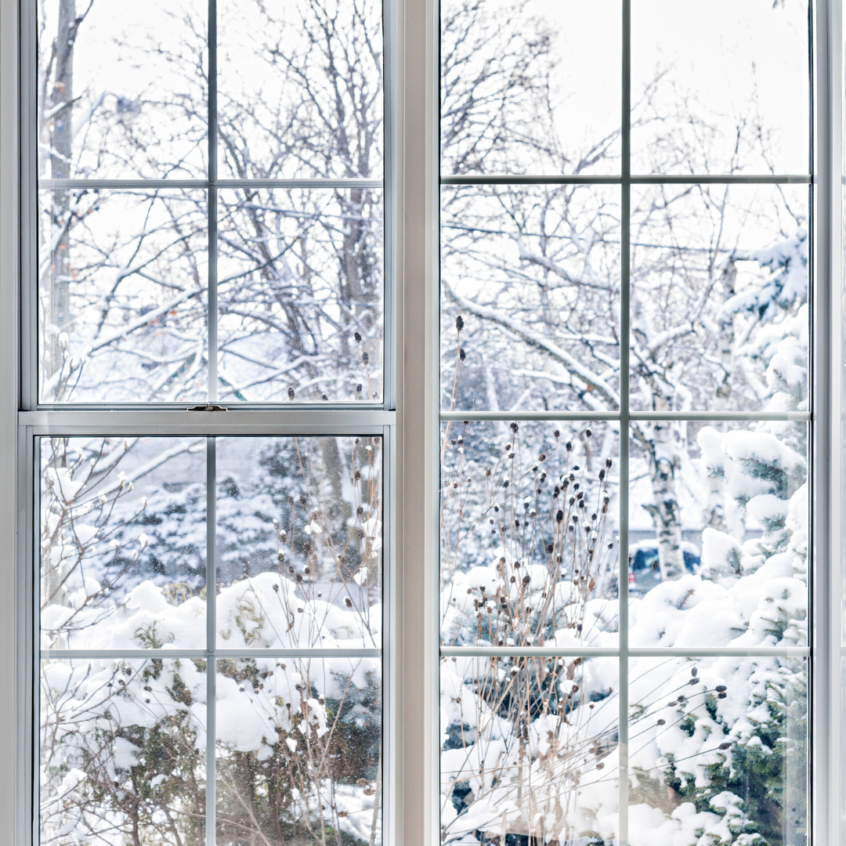Typically a Texas winter does not get freezing cold until January and February. For 2024, the Farmer’s Almanac predicts, “Texans will need to bundle up, as unseasonably cold weather is forecast throughout January and February, with a possible major winter storm in mid-January.” Two years ago a winter storm, nicknamed the Snow-pocalypse, killed 200 and left almost 5 million people without power in Texas. Today we are going to focus on winter preparedness tips that you can implement now.
Protect Pipes
This is an absolute necessity as even a short freeze can cause major damage to any exposed pipes. Wrap your exposed pipes with insulation and protect them from the cold temperatures. Also, consider any pipes that are not exposed on the exterior of the home but not in a heated area like in the attic. You will need to wrap them as well.
Disconnect all water hoses and allow them to drain before rolling them up. You can even turn off the water to your outdoor faucets and allow them to drain instead of wrapping them. Remember the water within the pipes expands when it freezes and that is why pipes burst in a hard freeze.
Home improvement stores also sell heat tape as an alternative to the insulated sleeves. In addition, you can purchase heated water hoses if they are necessary during a winter storm.
Stock Supplies
Similar to when a hurricane is approaching the Gulf Coast, power outages can spoil our food in a winter storm, too. Stock food, water, and medicine that you will need in case of a prolonged outage. Foods, like canned or packaged tuna or chicken, protein bars, jerky, and dried fruit, are great to have on hand. They don’t require any cooking and yet provide protein and/or energy. If you have a camp stove, then you can expand to canned soups, beans and rice, and more.
You will need bottled water for each person in your family, and don’t forget your pets. Experts suggest one gallon per person per day. You can fill your bathtub with water in advance of the storm to use for flushing the toilets. Ensure that you won’t run out of your prescriptions by refilling them in advance of the storm. Also make sure that you have common over-the-counter medicine like pain medication, upset stomach, or allergies. Additionally, a first aid kit is always great to have on hand. Then you will can rest assured that your family can make it through any winter storm with as much comfort as possible.
Warm Clothing and Blankets
The safest way to fare cold temperatures is to dress for the occasion. Wear layers, wear gloves, and sit under blankets in your home. This is so much safer than trying to heat your home with the oven, by running your car in the garage, or even bringing your gas grill indoors. You might be thinking, “Who would do this?” Well, people have and some died of carbon monoxide poisoning. Therefore, another tip is to install a carbon monoxide detector in your home. However, dressing warm is definitely the safest way to weather the storm.
Use the Elements to your Advantage
Without power, it won’t take long for your food to spoil in the fridge or freezer. The CDC says after four hours, your refrigerated food begins to be unsafe. You can place your perishable food in a cooler and sit outside in the freezing temperatures. This should prolong their life. Refrigerated food needs to stay under 40 degrees. Frozen food can stay frozen if you keep the doors shut for 48 hours. This might be enough time for power to be restored. If not, check out your homeowner’s insurance policy. Many policies will cover lost food.
Battery-Powered Lights
Battery-powered flashlights or lanterns are a safer option than candles. Make sure that you not only have light sources but extra batteries on hand, too. Candles will work. However, there is a chance that they could get knocked over and start a fire. Flashlights, headlamps, and other battery-powered lights are a better choice.
Although this is not an exhaustive list, there are plenty of winter preparedness tips for you to implement this year. Regardless if the Farmer’s Almanac is correct in its predictions or not, it is always better to be prepared. Stay safe this winter!

